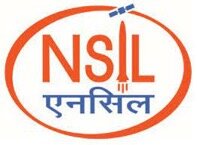By Aleena Joseph Kalayil

Space: a vulnerable domain
The very existence of human life on earth today is dependent on space-based services. From banking and money transfers to streaming online content and using maps, the internet and other technological capabilities are being widely used by everyone across the world. From an individual level to an international level, space-based services play a crucial role. However, there are still many challenges and threats within the space domain that need to be addressed at the national, regional, and global levels. All these imply the fact that space is both a competent and vulnerable domain in the contemporary world.
Because of the growing importance of space as an infrastructure for the modern world, it was only natural that a domain that used to be exclusively Government-ruled and dominated became appealing to private companies searching for profits. While the major private space players are West-based (SpaceX, Blue Origin, etc.), many more private actors are emerging from different parts of the world and the NewSpace wave is thriving at a steady pace.
The Indian Space sector saw a 30% increase in private company proposals in 2021.
India is one of the most prominent space players which will likely emerge in the next few decades. From Aryabhatta to Chandrayaan – 2, to the upcoming Mangalyaan – 2, India showcased a rich history of space activities. The involvement of private players in the Indian space sector started to accelerate after 2020, and recently, with the pandemic, the national space sector started to witness the NewSpace wave coming in, creating a better space industry for the nation.
India in Space
Indian Space Research Organization (ISRO) is the Indian national space agency, whose primary objective and goal is to develop space technologies and use their applications for the common benefit of the nation. Initially, the research and development activities in space were under the Department of Atomic Energy. The space activities of India were initiated in 1962 with the setting up of the Indian National Committee for Space Research. Later in 1972, the Department of Space – DoS was formed by a Space Commission, which brought ISRO under the DoS. As of today, ISRO has launched a total of 129 satellites made in India, and 342 foreign satellites from 36 other countries since its establishment. There are a total of 53 operational satellites, out of which: 21 are for communication, 8 for navigation, 21 for earth observation, and 3 for science experiments. With two operational launch vehicles, the GSLV (Geosynchronous Satellite Launch Vehicle) and the PSLV (Polar Satellite Launch Vehicle), the Indian space sector has gained much attention from all around the world. Especially for being one of the most cost-effective space programs.

The self-reliant missions and activities of the Indian space sector always had the government and other government entities leading from the forefront. Under the DoS, India’s space sector also constituted several other space research and development centers like the Vikram Sarabhai Space Centre (VSSC), the U R Rao Satellite Centre (URSC), the Satish Dhawan Space Centre (SDSC), etc.
On the other hand, to regulate the nation’s space commerce, the DoS has instituted Antrix Corporation Limited. Antrix was established in 1992, and ever since then, they have taken up many projects and initiatives for commercializing Indian space products and services. From providing end-to-end solutions ranging from supply of software and hardware to launch services through the operational launch vehicles like PSLV and GSLV of India, and mission support services, Antrix has raised around Rs. 6289 crores (ca. 62 billion USD) within 2016-2019, according to statistics.
The “New” Space domain of India after 2020
The New Space India Limited – NSIL, was the first step in accepting private space players into the national space sector. NSIL is the commercial arm of ISRO, with the main goal of bringing the socio-economic benefits generated by space technology to the country. It was initially incorporated under the DoS in 2019 and then expanded in 2020, to enhance and widened its scope and business impact. The revised mandate of NSIL consists of building and owning satellites, providing launch services, initiating technology transfer for the Indian space industry, etc. Through NSIL, the Indian space sector has gained many commercial accomplishments, which also include the first dedicated commercial launch service mission of NSIL – the Amazonia – 1 mission of Brazil. The importance of private space was reinforced in June 2020, when India formed the IN-SPACe, Indian National Space Promotion and Authorization Centre, administrated by the DoS.
IN-SPACe was established to oversee and regulate private space activities for the betterment of the national space sector. It promotes the NewSpace infrastructure and facilities by the private entities through safety norms and other statutory guidelines.
As of June 2021, a report indicated that India has It could be argued that the establishment of the NSIL and IN-SPACe has enhanced the growth of private space actors in India.
Apart from the IN-SPACe, the DoS is also trying to engage more private sector participation via revision and softening of the existing policies, and the creation of new policy frameworks addressing the private actor involvement in different segments of space.
ISRO also provides incubation activities for future start-ups based on space applications and it eventually leads to job opportunities within the space sector through the Science Technology Incubation Centers (STI -C).
With all these activities, the Indian space sector is all set up to grow up to 50 billion USD by 2024.

Evaluating Indian opportunities and constraints
There are a lot of opportunities as well as challenges for the NewSpace actors in India. With the establishment of the INSPACe, it was clear that the State wanted to show its support to the young private space players. The Indian space sector, who was traditionally undertaking activities under the government, now has evolved into a public-private partnership taking up upstream and downstream activities and missions.
Through the INSPACe, the many NewSpace actors in India will be presented with an opportunity to work in collaboration with not just the government factions, but also with other institutions and entities in India and other countries. This will, in turn, impact the market growth and thereby enhance economic benefits for all the parties involved.
India has been a traditional space sector since its inception and its low production cost compared to the rest of the space industry is an important competitive factor. With the recent privatization of the Indian space sector, the Indian Government has implemented several entities like the NSIL, INSPACe, etc. which have benefitted the growth of the private actors in the Indian space ecosystem. To carry on the legacy of the Indian space sector, it is inevitable for the policymakers to bring in effective law and policy frameworks for the private space players, to enhance the collaborations with the government. This will include the extent to which the cooperation can be conducted, the market segments, the research and development incentives, etc. Only the proper implementation of the law and policy framework will create a suitable environment for the NewSpace actors to grow. Hence, it becomes a potential challenge to enable this growth effectively. Already there are ongoing debates about the finance and insurance segments of this upcoming new policy.
Despite the policy challenges, the involvement of the private sector in the space domain is inevitable. This will allow India to not only enhance its space-based capabilities but also to be an active leader in the international scene. Perhaps, with the upcoming space policy framework, which hopefully will be more efficient and transparent, the full potential of the Indian NewSpace sector will be unleashed.

Aleena Joseph is the Co-Founder and Head of External Relations at Asia Pacific Oceania Space Association – APOSA, a sustainable space community development initiative. She pursued her master’s in Geopolitics and International Relations from the Manipal Academy of Higher Education, India, after completing her bachelor’s in Physics from Kerala, India. She is an aspiring policy analyst focusing on various international relations topics including space policy and law, space governance, and space security.





